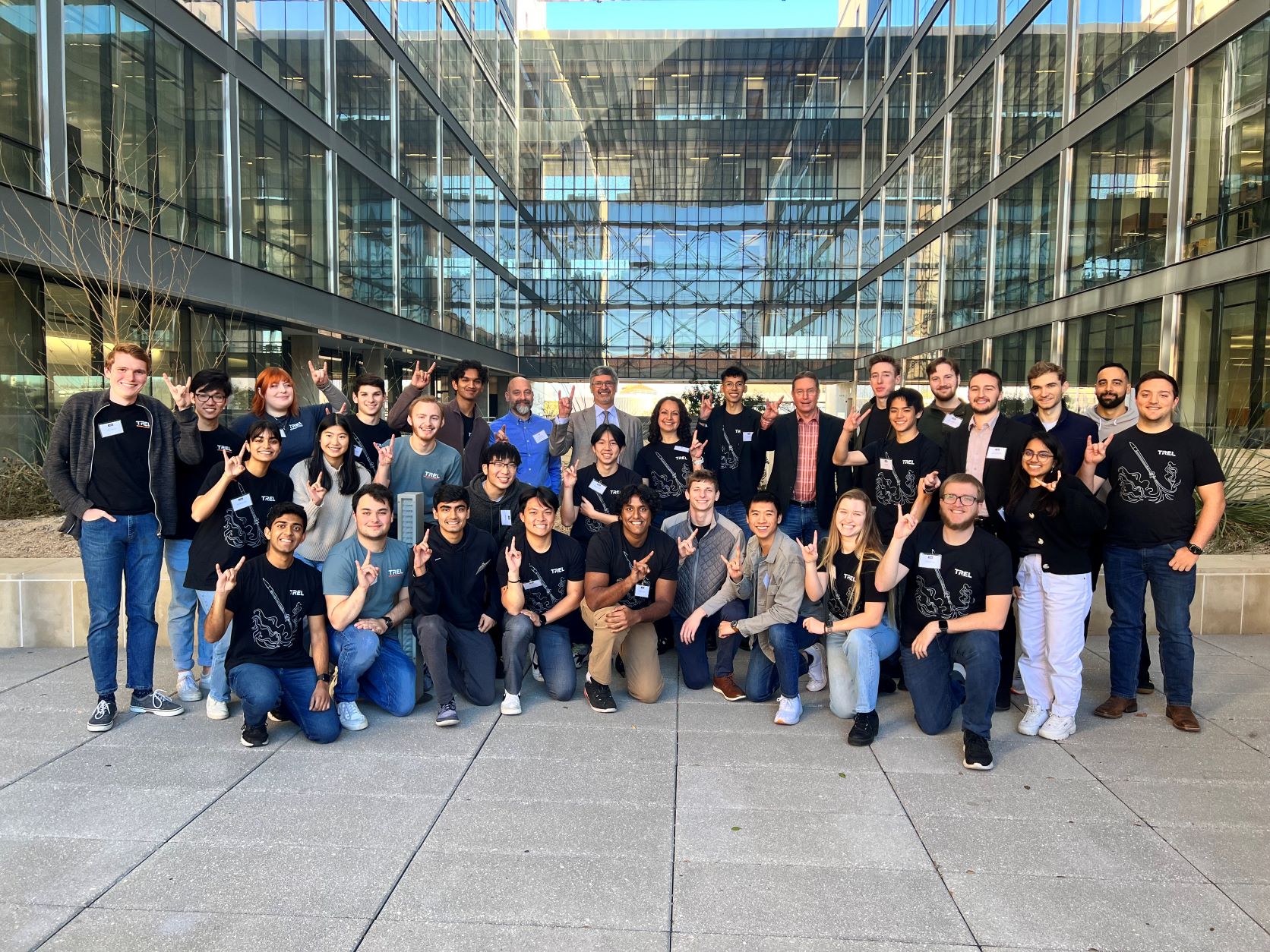
Lockheed Martin is supporting the Texas Rocket Engineering Lab (TREL) at the Cockrell School of Engineering in its years-long endeavor to become the first student-led university team to launch a single-stage, bipropellant rocket to the edge of space.
The funds will help TREL solve a variety of challenges related to their goal of a 2024 launch, including materials, testing and site logistics. Lockheed Martin is providing $150,000, as well as mentorship, logistics and launch support.
“Having Lockheed Martin’s support to procure materials will go a long way toward making sure we can assemble the rocket, test it and launch on time,” said Steven Ortega, a mechanical engineering major and TREL’s director of operations.
Launch Challenge Scrubbed
Students began working on the project in 2018 when they entered the Base 11 Space Challenge to compete for a $1 million grand prize, which challenged collegiate teams to design, build, launch and recover a liquid-fueled, single-stage rocket to an altitude of 100 kilometers by Dec. 30, 2021. Since then, the nearly 260 members of TREL – an interdisciplinary undergraduate program made up of UT Austin students from 24 majors across eight schools – have been working tirelessly to design, fabricate and test their rocket in an effort to reach this lofty goal.
As with all engineering projects, the team encountered its fair share of challenges along the way, the biggest of which involved the cancellation of the Base 11 Challenge during the Covid-19 pandemic. While students were initially let down about the news, the $1 million prize still remained on the table and they were more determined than ever to continue moving forward toward their goal. But there was still one big problem to resolve – how and where would the rocket be launched once it was ready?
“With the cancellation of Base 11, we were forced to find a new launch site and additional support for launch,” said Sandy Barker, the director of TREL and an associate professor of practice in the Department of Aerospace Engineering and Engineering Mechanics. “And now, thanks to this new partnership, Lockheed is making that happen.”

The corporate support comes at a time when TREL needs it most, as the team is nearing 80% design completion of its powerful 28-foot rocket named Halcyon, in preparation for a planned May 2024 launch date.
The mentorship and experience launching rockets will be extremely important to TREL’s operations and launch preparation as well, Barker said.
Countdown
To kick off the new partnership, Lockheed Martin hosted an event on the UT Austin campus at the Cockrell School’s Engineering and Education Research Center Jan. 26. The day’s events included a check presentation to TREL, demonstrations, exhibits and technical talks.
“At Lockheed Martin, we believe in investing in the next generation of talent. We are excited to sponsor the Texas Rocket Engineering Lab and contribute resources, mentorship and funding to help a student-led team launch a rocket,” said Scott Arnold, vice president for Integrated Air and Missile Defense (IAMD) at Lockheed Martin. Arnold, an alumnus of the Walker Department of Mechanical Engineering, has long championed partnerships like this one.
TREL’s next big step this spring is to begin the test campaign of Havoc – a liquid rocket engine that utilizes advanced additive manufacturing methods and high-performance regenerative cooling. Ortega said TREL will be the first student rocketry group to implement these two technologies in an engine of this size, which aligns with their primary goal of becoming the first collegiate group to send a liquid-fueled rocket beyond the Karman line – a generally agreed upon boundary where the Earth’s atmosphere transitions to outer space at an altitude of about 60 miles.
“Launching a rocket like Halcyon requires unique and extensive infrastructure that has been challenging for us to pin down,” said aerospace engineering junior Buckner Newberry, also the director of TREL’s test and launch operations. “Lockheed Martin’s support will not only allow us to obtain crucial hardware to build Halcyon and its testing infrastructure, but also provide us with a launch site at the White Sands Missile Range in 2024. We couldn’t be more excited and grateful for this partnership as we move into the final stretch of this project!”
If TREL is awarded the $1 million prize, the funds will be used to support rocket engineering education in the Cockrell School’s Department of Aerospace Engineering and Engineering Mechanics for years to come.
